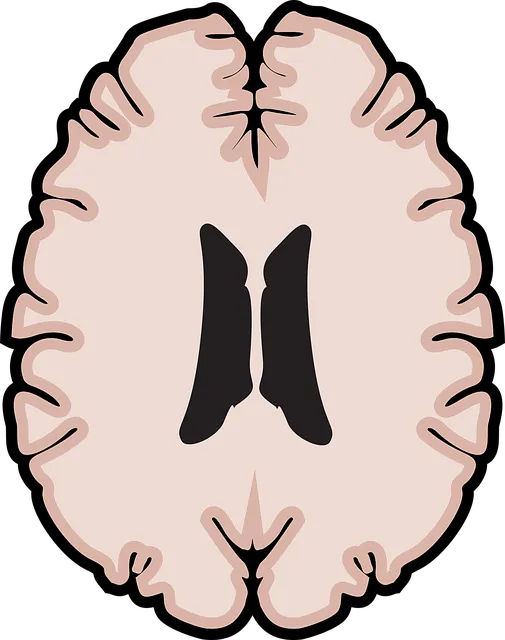Louisville Kaiser Permanente is revolutionizing mental health care through advanced tools like data analysis, standardized assessment protocols, and cultural competency training. They combine patient feedback with cutting-edge technology to enhance diagnosis accuracy, offering personalized treatment plans. Their holistic approach includes mental wellness coaching programs that support individuals in managing conditions and building resilience. This collaborative strategy, focused on community engagement, aims to provide precise, patient-centric care, particularly for stress-related issues and trauma support.
Mental illness diagnosis accuracy is a critical aspect of patient care, especially at institutions like Louisville Kaiser Permanente. This article explores targeted efforts to enhance diagnosis techniques, leveraging advanced assessment tools and specialized training for mental health professionals. By integrating patient feedback and data analysis through community engagement and collaborative research, Louisville Kaiser Permanente appointments aim to improve accuracy. Additionally, standardization and consistency in protocols ensure reliable diagnoses, ultimately improving patient outcomes at this leading healthcare provider.
- Enhancing Diagnosis Techniques: Utilizing Advanced Assessment Tools and Training for Mental Health Professionals at Louisville Kaiser Permanente
- Integrating Patient Feedback and Data Analysis: Improving Diagnosis Accuracy through Community Engagement and Collaborative Research
- Standardization and Consistency: Developing Comprehensive Protocols to Ensure Reliable Mental Illness Diagnosis at Louisville Kaiser Permanente Appointments
Enhancing Diagnosis Techniques: Utilizing Advanced Assessment Tools and Training for Mental Health Professionals at Louisville Kaiser Permanente

Louisville Kaiser Permanente has been at the forefront of revolutionizing mental health care through enhanced diagnosis techniques. The healthcare provider has invested significantly in advanced assessment tools, incorporating cutting-edge technology to improve accuracy and efficiency during mental health appointments. This initiative is part of a broader strategy aimed at boosting confidence among both patients and mental health professionals. By providing training focused on cultural competency, Louisville Kaiser Permanente ensures that its staff are equipped to handle diverse patient populations with varying cultural backgrounds, thereby fostering inclusive care.
In addition, the organization has developed mental wellness coaching programs as a complementary approach. These programs not only support individuals in managing their mental health conditions but also empower them to navigate life’s challenges with resilience. The integration of these innovative strategies reflects Louisville Kaiser Permanente’s commitment to not just treating symptoms but promoting overall mental wellness within the community.
Integrating Patient Feedback and Data Analysis: Improving Diagnosis Accuracy through Community Engagement and Collaborative Research

Integrating patient feedback with advanced data analysis has emerged as a powerful strategy to enhance mental illness diagnosis accuracy. Community engagement plays a pivotal role in this process, ensuring that diverse perspectives and experiences are considered. When patients feel heard and valued, they are more likely to share detailed accounts of their symptoms, which can provide crucial insights.
At Louisville Kaiser Permanente, for instance, initiatives focus on fostering open communication during mental health appointments (number: [insert relevant appointment number here]). This involves encouraging patients to offer feedback on their experiences, treatment effectiveness, and any challenges faced. By analyzing this feedback alongside clinical data, researchers can identify patterns and trends that might not be apparent through traditional methods. Such collaborative efforts aim to refine diagnosis procedures, incorporate Empathy Building Strategies and Compassion Cultivation Practices, ultimately leading to more precise and patient-centric mental health care.
Standardization and Consistency: Developing Comprehensive Protocols to Ensure Reliable Mental Illness Diagnosis at Louisville Kaiser Permanente Appointments

Louisville Kaiser Permanente has made significant strides in enhancing the accuracy and reliability of mental illness diagnoses during appointments. One of the key strategies employed is the development of comprehensive protocols that standardize assessment procedures. By implementing a structured approach, healthcare providers can ensure consistency in their evaluations, leading to more precise diagnoses. This standardization involves a step-by-step guide that covers various aspects, from initial patient history intake to specific diagnostic tools and criteria.
The protocol aims to provide a framework for reliable mental health assessments, particularly focusing on complex cases where distinctions between conditions are subtle. By adhering to these protocols, Louisville Kaiser Permanente appointments can offer more consistent care, ensuring that patients receive accurate diagnoses and tailored treatment plans. This approach not only benefits individuals struggling with mental health issues but also streamlines the process for healthcare professionals, fostering a more efficient and effective healthcare system, especially in managing stress-related concerns and providing trauma support services.
Through enhanced diagnosis techniques, patient feedback integration, and standardized protocols, Louisville Kaiser Permanente has made significant strides in improving mental illness diagnosis accuracy during appointments. By utilizing advanced assessment tools, training for professionals, community engagement, and collaborative research, the healthcare provider ensures reliable and timely diagnoses for its patients. These efforts not only benefit individuals seeking mental health care but also contribute to a more comprehensive understanding of mental illness within the Louisville community.






